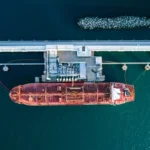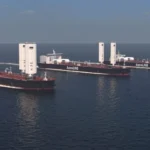Sea Piracy: The Impact on Seafarers and Their Families

Modern-day pirates may not wear an eye patch or wave a sword in your face, but they are more real and more dangerous than any of the fictional characters we’ve grown to love as children. Nothing about the sea pirates of today is lovable.
The only thing they invoke is fear, and to anyone who’s become their victim – post-traumatic stress disorder (PTSD).
Oceans Beyond Piracy and One Earth Future published a report that revealed the long-term impact of sea piracy on seafarers and their family members.
One of the key findings from the report After the Release: The Long-Term Behavioral Impact of Piracy on Seafarers and Families, revealed that 25% of former hostages showed symptoms of PTSD. This puts the seafarers at risk of poor wellbeing, overall.
But who wouldn’t be traumatized with the type of abuse that the hostages are subjected to?
In a series of interviews and structured surveys, 101 former hostages from India, the Philippines and Ukraine revealed the kinds of abuse they suffered from their captors and rated them accordingly. Threats of death or execution came out on top, followed by starvation, and threats of abuse or beating. Being slapped, punched or kicked by pirates and serious injury to other crew rounded out the top five. There are also a few instances where hostages are hung overboard.
With these types of abuse, it’s not a surprise that former hostages end up with physiological and psychological injuries, resulting in PTSD.
Unfortunately, the impact of piracy doesn’t stop with hostages suffering from PTSD. It also translates to their families and loved ones, especially to those that have problems getting information about the hostage situation and the conditions of a seafarer. This can result in lasting distress and other behavioural effects brought on by their harrowing experience. Even if everyone survived – both the seafarers and their families, they aren’t exactly unscathed. They have to work hard to get past the experience and achieve some sense of normalcy.
This is why the published report wants to outline the importance of a proper response to Maritime piracy.
Seafarers should prepare for a potential pirate attack through event planning and training, and concerned agencies must provide post-event support and care, including care for the families. There should be support for social integration and mental health, requiring programs designed to support resilience and minimise the long-term impact of piracy.
For all of these to happen, however, the report emphasises on a coordinated effort from the state, industries and seafarers’ support organizations.
But perhaps a better solution would be better security measures and legislation set in place. A good example is the Sulu Seas Patrol Initiative (SSPI) framework designed to mitigate Maritime crime. Through the initiative, there will be “joint air patrols, coordinated naval patrols and exchange of military intelligence between Malaysia, the Philippines and Indonesia”.
Although the SSPI framework has yet to be signed, and its operationalism still up for discussion, it takes one step closer to a more secure Maritime territory.
The Federal Government of Nigeria is also supporting regional initiatives to fight against sea piracy, especially in the Gulf of Guinea, which Dr. Dakuku Peterside, Director-General of NIMASA, describes as notoriously known as one of the top 3 locations where piracy occurs.
He said, “If the continent and maritime actors do not rise up to tackle piracy, it will affect commerce which is the driver of growth and by extension hamper development”.















